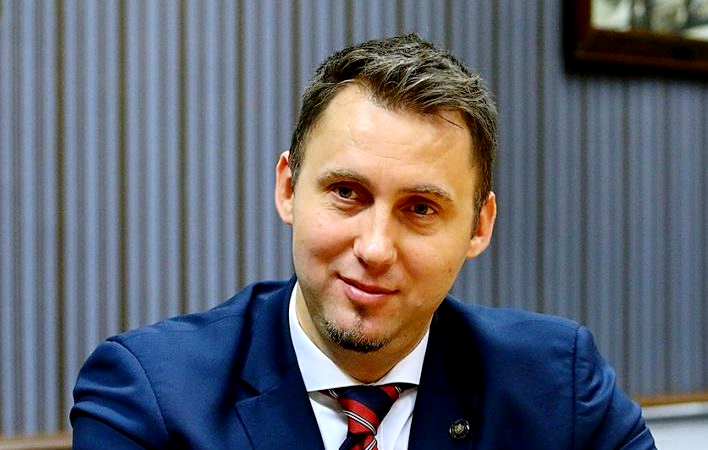Deputy Governor of Hungarian National Bank: Close co-operation needed with fiscal policy
EnglishThe epidemic has caused significant changes in the economy, as well as in monetary policy; and closer co-operation is needed between the fiscal and monetary policies, Barnabás Virág, Deputy Governor of the Hungarian Central Bank (MNB) said in Budapest on Monday at this year’s Lámfalussy Conference, which was held online.
He stressed that the pandemic presented a significant challenge to governments around the world. The Hungarian government has introduced tax cuts and job protection subsidies to reduce the negative effects of the virus, while the central bank has provided liquidity to companies through the banking system. He added that the crisis has highlighted the need for cooperation and continuous communication for a successful economic policy.
 Barnabás Virág
Barnabás Virág
This year’s Lámfalussy Lectures Conference, held online because of the virus situation, focuses on the future of monetary policy after Covid-19 and the impact of the epidemic on public debt.
According to the deputy governor, the balance sheets of central banks will expand dynamically in the future.
They have already grown significantly as a result of the epidemic, with MNB's balance sheet reaching record levels in order to ensure liquidity.
In Western Europe, emergency measures were taken to ensure the stability of public finances, while for the national banks of the Central and Eastern European region it was more of an opportunity to support crisis management. According to Barnabás Virág, a larger balance sheet will be the new norm in the future.
As a third important feature, he mentioned that the presence of central banks in the market of government securities has become enduring.
Central banks may buy more government securities, which may remain necessary even after the epidemic to ensure the smooth operation of the government bond market. This improves monetary transmission and so contributes to the central bank's primary stability objective and sustainable growth. Central banks can also be a driving force in green financing and digitalisation, and MNB is also aiming to achieve this, he added.
He stated that the winners of the next decade will be those who, after drawing the right conclusions, find creative, wise and courageous solutions to the challenges.
Modern central banks need to play their part in boosting the economy in the medium term by developing targeted stimulus programs, he concluded.
Ji Kang, (Yi Gang), Governor of the People's Bank of China pointed out that last year was particularly hard because of the virus. In his view, the Chinese monetary policy succeeded in proactively supporting economic growth in the crisis caused by the epidemic. They are planning to launch two new monetary policy instruments aiming to support the lending activities of commercial banks, the green economic transformation and green investment projects, and they are also planning the issuance of green bonds.
Lámfalussy and Popovich Awards
This year's Lámfalussy and Popovics Awards were also presented at the conference. The former rewards internationally outstanding professional achievements that have an impact on international monetary policy, while the Popovics Award, named after the first governor of MNB, is awarded every year to a young professional who performs outstanding work in the field of economics and finance.
This year the Popovics Award was received by Gergely Fábián, Executive Director of MNB responsible for credit promotion and statistics.
The Lámfalussy Award was given to Boris Vujčić, Governor of the Croatian National Bank, who played a key role in Croatia's accession to the EU.
Boris Vujčić was appointed Chief Economist of the Croatian National Bank in 1996 and then Governor in 2012. The reform of Croatia's monetary policy system and the stabilisation of the kuna took place under his direction, which helped bring the country close to adopting the euro.
Boris Vujcic spoke about the fact that even a few years ago nobody could have thought that the negative interest rate environment would not only be temporary in the economies. "Today, extremely low interest rates seem to remain a permanent feature of the economy", he said.
Gergely Fábián, winner of the Popovics Award this year, graduated in economics from the University of Maastricht, and has been Executive Director of the Hungarian National Bank responsible for credit promotion and statistics since 2009. From 2012 he was the head of the analysts team, while from 2015 he worked as Director of the Financial System Analysis Directorate. Since September 2017, he has been Executive Director responsible for financial system analysis and credit promotion, and CEO of the Budapest Institute of Banking.
In his speech, Gergely Fábián thanked Governor György Matolcsy, who "threw him in at the deep end” several times, helping him to get the most out of himself. He also thanked his colleagues for their help and for working together during his 12 years at MNB. He pointed out that working for MNB is much more than a job; it is a strong commitment to value preservation and value creation.
